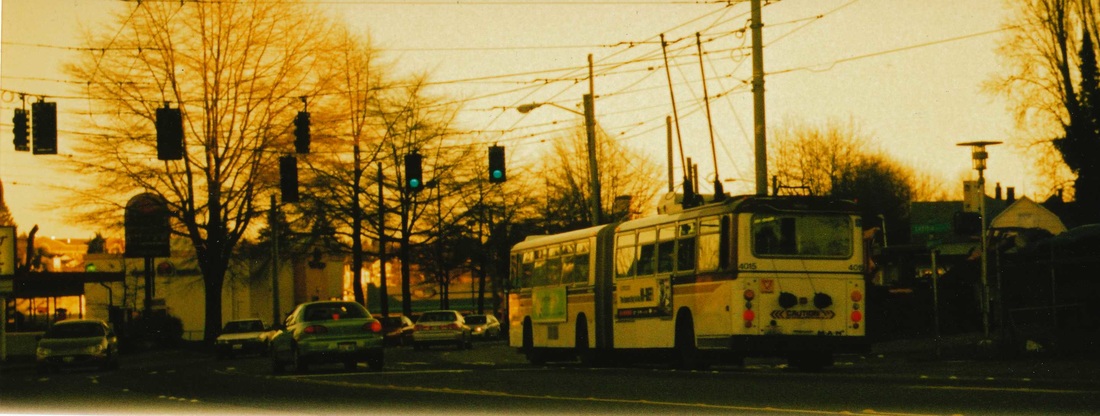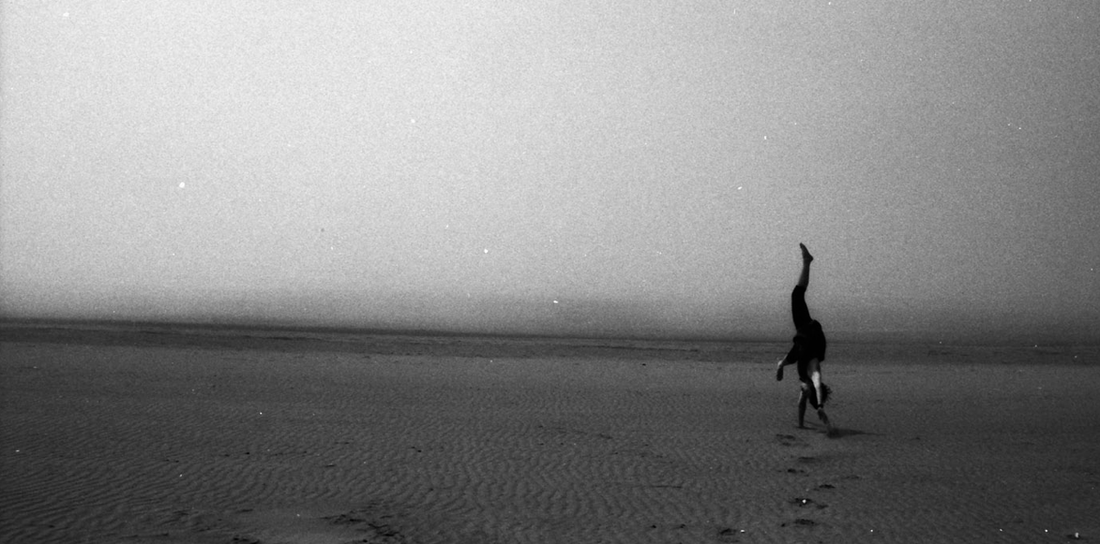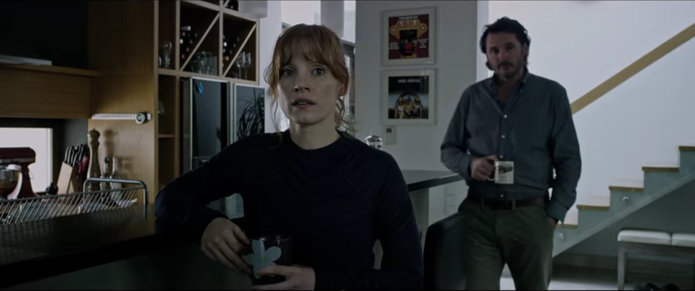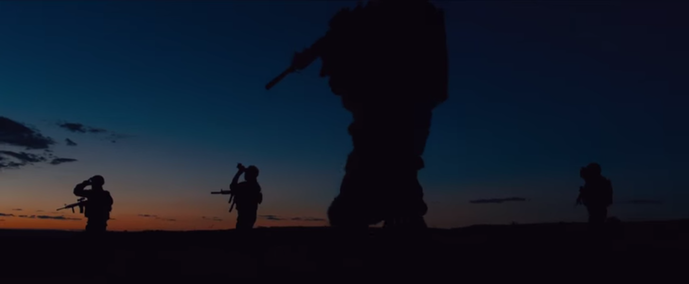|
(This is a story from long ago I'd saved for myself, but sharing it now feels appropriate. Hope you enjoy it.)
Five minutes after a phone conversation in which I got dumped, this guy showed up and asked if I wanted any fried chicken. He was an Ezell's employee, a squat and friendly face in the wee hours, absolutely loaded with tenders, wings, rolls, you name it. I don't usually eat fried chicken in the middle of the night. Actually, I almost never eat fried chicken. I eat kale and scrambled eggs. I'm one of those. But what is it they say about rules? When a guardian angel offers you the hookup, and it isn't drugs, alcohol, or Five-Hour Energy, it's a sign from above the clouds, not to be ignored. The universe speaks to us in mysterious ways, and some of those ways include crispy chicken tenders, extra spicy, with a few wheat rolls thrown in for good measure. He and I were parked at Rainier and Rose, taking advantage of an extra minute in the schedule to work out the negotiations. Take some, take some, he said. Take some rolls too. No, no, I responded, gradually realizing that when it comes to chicken guardian angels don't accept no for an answer. He insisted that I consume, free of charge. This is what the universe looks like when it notices you need a little help. "You're a nice guy," he said. "No, you're a nice guy, man! This is my dinner! Thank you so much!" It's not all about me, though. In the range of things which will galvanize the uninterested, particularly in the part of town we're in right now, fried chicken reigns high. It belongs to more than just bewildered dumpees. "Ay, hole up!" a voice rang out. We'd aroused the attention of a young man seated halfway down the bus. Chicken was wafting through the air, and he was stirring. "Whatchoo doin with tha' fried chicken?" "What?" said the guardian angel. "Ah see you givin' him some." Picture the voice, if you will: half hardcore, with gold teeth and apathy, and half hungry toddler, tentative, feeling left out. Those two ends of the spectrum are rather closer than we often think, opposing sides of a single coin. "You want some?" "Hail yeah!" "Cost you twenny dollars!" "Ha!" They worked it out. Angels don't discriminate in their chicken distribution. But you knew that. As he swaggered back to his seat, the young man smiled to himself, genuinely, the smile you make when no one's watching. We yearn to feel complete, if only for a moment. "Thank you so much, again! " I said. I have a tendency to over-thank people. Can I help it though, if I'm awed by the familiar? "Well, you a nice guy!" "Love that dude," I said to the guy halfway down the bus after the Ezell's angel had gone. "No way he eatin' alla dat!" "Ooh, I think I will!" "No, I mean him!" "Oh, yeah, he had the hookup! That needs to happen more often!" "Yuuup!" He chomped away quickly, burning the chicken candle at both ends. I held off, as I was driving, of course. I've driven through the tunnel eating an apple, and I really have gone up Rainier Avenue chomping on raw kale– it's what you do when there's no break time: stretching and bathroom at the terminal, then eat on the road– but a bus driver chowing down on Ezell's and smearing grease all over the steering wheel would just be bad form. Don't you agree? How could you trust the guy? We're not wired to have faith in an operator who's wolfing down pork ribs. As such I let the fried chicken aroma waft up from the dashboard. Ah, yes. This is healthier anyway, I thought, dispatching one of the wheat rolls. The smell was all I needed. It was the scent of kindness, of gestures offered willingly, for no exchange. It was a distant and gentle wink, a reminder that planets do align, though perhaps not in the way we shortsighted earthlings might prefer… a reminder of the long view, in which life contains not just valleys but peaks, details, comforts, and mysteries, to be seen only by appreciative eyes.
4 Comments
"Ha, ha, ha," he laughed, in his gravelly voice, clipped and far-flung. That's an Eastern European accent maybe, or perhaps Russian. We're passing by a set of whirling blue and red lights. I never look at accidents. My passengers can do that for me. People complain about Looky-Loos, but have you noticed how they too look themselves? I find morbid neck-craning artless and tiresome. We can all agree Looky-Loo slowdowns on the opposite side of an incident are among the most grossly unnecessary parts of the traffic organism. Do you want to be gawked at, when your leg is broken?
This fellow, dressed in a tattered assortment of grays and browns, was observing the carnage to our left, and it made him cackle. "Somebody had a heart attack, ha, ha. Always somebody having a heart attack!" I was having my Looky-Loo thoughts and considered taking offense, but decided otherwise. What would be the benefit? No need for such theatrics. I may think empathy is important, but he has his own perspective. I did what has saved me in the past– search out the common ground. Getting along makes life easier. "Every day," I agreed. "I never had one," he rumbled. I loved his accent. Niiyever. "I have high blood pressure, but so far no. I just drink beer and vodka all day." Wodka. "But I have no heart attack!" "You don't want that!" "I love beer and wodka." "No, I mean a heart attack." "Oh, I don't care about that." I didn't say anything, but he heard my silence anyway. My silence thundered out, well, you will, if it happens…. He replied to my thought with, "if I'm going to die, I'm going to die." "That's true." This man's wisdom lies in repetition. "Better to die in bed than on the street. People retire then the next day they die. Me, I am going to live. While I'm alive, I'm going to live." We come to this game equipped with our past experiences, and we tackle it based on those, in the way we think ideal. Was his final thesis so different than mine, when I tell myself to drive this trip as if it were my last chance to do so? A good friend once told me, the worst thing we can do to ourselves is put off our goals, passions, interests, on the faith that there will be time to do so in the future. That time may not materialize. The outline of ourselves exists to be filled out not later, after the mortgage is paid or the kids are grown, but in this breathing minute. This turn, carried out with the precision I know I'm capable of; this greeting, my eyes twinkling for my fellow brethren, whom I may not know again. Such ideas bring out the best in me, and remind me of the value of making the most of that short window of time we call "now." There is nothing else. "Aw, man," he groaned.
His outstretched hands said it all, long limbs extending from an oversized jumpsuit as he moved closer to the bus doors with a hobble. He was about to ask for a ride, and I decided to just go ahead and thank him preemptively. I appreciate when people take the energy to ask me. It's a risky move based on the behavior of some other operators. And, crucially, they're taking that risk solely for the purpose of offering you some respect. They know they could just storm on and head to the back with nary a word. They don't get anything out of it, except possibly a refusal. "You're cool," I replied. "Thanks for asking." He was in bad shape, limping heavily on an oversized leg cast. His stoic look and build resembled that of RZA, of the Wu-Tang Clan, except this man's stoicism was interrupted periodically by flashes of pain, shooting up from his leg to spider out on his face. His brain must have been moving slowly now, because he started offering an explanation for his free ride request anyway. "I misplaced mah transfer somewhere today…." "Here, lemme give you a Night Owl." At this time of night everyone gets Night Owl transfers, but I verbalized it to offer some comfort. "I appreciate you askin'. How's it goin'?" "Oh, it's not." Groan. "Hope you don't gotta wear that cast too much longer, I see it looks kinda heavy duty…." "Ah hope so too, mang. Iss no joke." You imagine Job sounding like this, weary and forsaken. "Just as long as it's off before Thanksgiving, you know what I mean?" "Yeah! Well, mah birthday December," "Okay yeah," "So I'm hopin'," "Yeah. It's not a permanent thing then." "Oh no way." "Good good, just as long as its not permanent. That's a whole other thing." "Yeah. Just tryna rest up." "Oh, yeah, gotta take it easy on ourselves every now and then. Can't be Superman all the time." "No way." I tried to comfort him by starting in with, "well, they say a bone never breaks more than once in the same–" "I got my shin shattered completely." "Oh, no." He paused, watching me. I called out Orcas Street. Somebody got on and gave me a fistpound, sharing how glad they were to see me back on the 7. Then, having some sort of mental evaluation, our friend leaned in, saying, "man, I'ma tell you tha story of how this shit happened. It was the stupidest shit anything's ever happened." "Okay yeah, tell me," "So I know Tae Kwon Do, right," "Okay," "And Jujitsu. I been practicin' it fuh years. Then I'm at this bar, talkin' to some dude. He be squarin' off like show me what choo got, and ah be beefin' like let's do this, le's go. Then all of a sudden he pulls out a gun and shoots me in the leg." "What? That's terrible!" "Yeah." "What?" "Yeah." "That's not what guns are for!" Not quite sure what I meant by that. Shooting things, I suppose. "And he din't even–" "Oh, wow. I'm sorry." "It's just starting to heal up. Ain't nothin' I can do about it." I sat there, impressed that he hadn't voiced word one regarding any sort of revenge-oriented inclination. He wasn't processing this event that way, in the sense of I've been wronged, and if only I could find this guy, all this pain would be rendered as nought… it takes some mental discipline to look beyond such things. I said "man, well, you got a good personality." "Iss done, man. Ain't nothin' I coul' do now but be present." I'm usually the one who says that. How refreshing to hear someone else talking about the value of presence. "Egg-zactly," I concurred, "bein' present. It's the only way! Easier to be happy." "Yup." I gave voice to another element I could sense in his tone: that he conceived of martial arts as a craft, and that the crowning disappointment of this affair was, more than the injury itself, his opponent's complete disregard of such. "…'Cause that's an art, Jujitsu, a discipline." "Yo. Does your phone have Facebook?" "No, I'm still using one of those flip phones!" Don't act surprised, dear reader! I shoot on film and listen to vinyl– what were you expecting? "But choo got a computer, right?" "Yeah." "You should check out this fight I did. I'ma tell you the name quiet 'cause I don't wanna say it loud on the bus. It's Weed Man–" "Weed Man," He said the following in an entirely serious voice– "Weed Man versus Dope Dealer on the Skinny Pimp Show." "Now that's a title! I'm not gonna forget that name!" "On the Skinny Pimp Show. Check out some uh the stuff I'm workin' on in there. Weed Man versus Dope Dealer. Das the stuff I'm talkin' 'bout." With that out of the way he switched gears, settling into a more ruminative mode: "Th' only thing is, people be lookin' at me different nowadays. I's at da bar with my bro, this' when I was on crutches, it was two girls there. And man, didn't none of 'em wanna talk to me when they saw the crutches." "Okay that says more about them then–" "And I'm like, iss temporary, it ain't nothin'!" "That's ridiculous. 'Cause it's not your person, your personality, your character." "Character, yeah!" I should have added, 'even if it was permanent,' but I wasn't thinking fast enough. It was a different element of that last exchange which stuck with me afterwards, though. You don't hear the word character used very often anymore. It seems to have been replaced with accomplishments. How petty. I'm glad he agreed with the fundamental obviousness of one's character as the meaningful definition of personhood. Moments like this bolster my belief that formal education is basically meaningless when it comes to true wisdom. They don't teach that in school. I'm thankful for what I've learned at University, particularly the ability to contextualize, and impose structural frameworks on thought processes, and I believe I'm a better thinker for it... but not a better person. Academia focuses too much on the binary, the quantifiable. Or as Andrei Tarkovsky put it (in his 1972 Solaris, based on the Stanislaw Lem novel): "In his endless search for truth, man finds only knowledge." Image courtesy Twentieth Century Fox.
Directed by Ridley Scott. An astronaut (Matt Damon) is presumed dead and abandoned on the Red Planet. With Matt Damon, Jessica Chastain, Chiwitel Ejiofor, and others. Trailer. -- I won't go on about The Martian for as long as I did below with Sicario, I promise. It's not that kind of movie. You walk out of Sicario simultaneously drained and fulfilled, in the way the great, heavy works of art can do (remember that last paragraph in A Farewell to Arms?). The Martian is a bona fide crowd-pleaser, but it's made with formidable craft. This won't be a proper review, but I'd like to make a note of how it compares to Alfonso Cuaron's Gravity (my review here) and Chris Nolan's Interstellar (thoughts here). All three share in an outer space setting, of course, and in that they expect their audiences to pay attention. But where Gravity is largely about the self and works as a metaphor for loneliness, and Interstellar concerned with matters of the heart, The Martian is preoccupied with engaging by way of the mind. Film tends to be an appeal to our creative, intuitive, and emotional leanings– it engages the intellect, sure, but moreso it can reach our soul, if you'll allow the word. It succeeds as the great art form of our period because it combines all the other arts and, at its best, arrives at that special place shared by music, where language is transcended. The Martian is not so lofty in its aims, but it accomplishes something perhaps equally impressive: it's a significant pop cultural entity that is also a celebration of intelligence. Wait a minute. When was the last time that happened? The screenplay trusts that we're going to be excited by complicated scientific solutions, dialogue scenes where knowledge and creative intellectualism is what carries the day. I, for one, was thoroughly compelled. The picture ends on a note reinforcing the power of rational thought as the great and ever-available problem-solver for our lives. When disasters face us, we crack our knuckles and get down to business, the film says, figuring out one side of the issue at a time before moving on to the next. Ridley's confident filmmaking aplomb all but conceals how unusual of a message this is. Those of you who know his work (Gladiator, Black Hawk Down, or what I consider his masterpiece, Kingdom of Heaven: Director's Cut) don't need to hear me expound on how rich his painterly visuals are. He breaks from usual form a bit by imbuing the picture with a tone that doesn't take itself seriously, and Drew Goddard's on-point screenplay combines wit with science in a way that seems like no other approach was possible, as if to say, you know, being bright can be fun too. Damon, in the titular role, clearly having a great time, reels off the one-liners with pleasure. His charisma adds significantly to an already engaging film. In fourth-quarter dramas, stateside foreign releases and indies we as audiences expect to be treated with intelligence, and we generally are. It's nice when a filmmaker has the ability and opportunity to do the same on a studio tentpole. Ridley's other work, Nolan's, or pieces like Fincher's Dragon Tattoo come to mind. As a French-Chinese hostel-mate once told me when I was traveling abroad: "America makes the some of the absolute dumbest, most horrible movies… and also some of the absolutely most complex, intelligent, amazing ones too!" Image courtesy of Lionsgate Pictures.
Directed by Denis Villeneuve. An FBI agent (Emily Blunt) finds herself in deep water while investigating cartel activity in Juarez. Co-starring Benicio Del Toro and Josh Brolin. Trailer. -- Why is Sicario the best film of the year so far? It will hold that lofty title, I imagine, for merely a brief time, as we head now into fourth quarter, as new work by Paolo Sorrentino, Danny Boyle, Spielberg, Todd Haynes, David O'Russell, Tarantino (in 70mm!) and others appear (the hyperlinks are trailers to each's respective upcoming films). But after the dust settles Sicario will still rank among the finer achievements of the year. No director working now is so adept at such finely calibrated, brutal intensity as Denis Villeneuve (Prisoners, Incendies). There is an atmosphere of menace oozing from every frame. That the opening establishes such a high barometer of dread, and that the film sustains in keeping us off-balance for the remainder of its runtime, is something I find both astonishing and extremely impressive. Villeneuve's impeccable choices of composition and camera placement communicate attitudes and sentiments far beyond what dialogue can offer. His cinematographer, the legendary Roger Deakins (who was so enamored by Incendies that he actually pursued relative unknown Villeneuve to work on Prisoners) conjures up visions of light and dark and detail heretofore unseen. Why is Villeneuve's tactile sense of menace so impressive to me? Because it stems from a veritable orgy of craftwork. He, Deakins, editor Joe Walker (who works for Steve McQueen) and others, through their prodigious talent and highly considered choices, create with precision. Take a peek at the trailer. Notice the decision to dedicate an entire shot to moving shadows hitting that small portion of curtain at 00:15, or the choice to focus on dust motes hanging in the air in the explosion shot at 00:17. He attunes us to details. Villeneuve's near-total avoidance of handheld camerawork furthers the sensation of a precise, singular vision conveyed with intention. The use of the wide 2.35:1 scope frame (as opposed to regular 1.85:1 widescreen) makes what could be overly claustrophobic feel expansive, and lends the film a larger, grander sense of scale, despite actually being a fairly intimate portrait of one woman's experience. Note also some interesting choices such as shooting this dialogue scene with the camera fifty feet away from the actors (01:27), rather than over-relying on close-ups. The trailer presents the moment out of context, but the alienation she feels in that moment is underlined by the distance. Also the general enthusiasm for doing something besides eye-level medium shots (reverse tracking low angle at 01:28, ariel at 1:30). There's a moment not in the trailer involving reflections on a glass table during a key revelation that is masterful, as well as a sequence shot entirely with heat-sensing and night-vision goggles. Why is all this visual razzmatazz important? It's not razzmatazz, would be my answer. Cinema is a visual medium, and the best examples of it are those films where the visuals communicate ideas and psychological states in ways that can only be done in film- that is, through the camera. We all know pictures are worth a thousand words, and there's no more portent communication delivery device than the moving image. A film which doesn't take advantage of this is a missed opportunity, and may as well be a stage play. Critics offer valuable context on content (people are finally realizing reviews are a better indicator of quality than marketing), but rarely have any image-making experience and thus hardly ever mention the craft elements of a picture (more on that here). Which is why I'm here, telling you to look at shots of dust motes. This is undoubtedly the most visually impressive film of the year so far. Note the choice to frame cars driving on a highway like this (01:45), the prevalence of natural light (01:46), or the saturated golden hues late in the picture (2:03). Screenwriter Taylor Sheridan, and Villeneuve as well, were both pressured by suits to rewrite the main character as male. Neither was particularly interested, thank goodness. All but two of Villeneuve's films center on female protagonists, which we always need more of. Like this year's Mad Max, the main character is female, isn't defined by her relationship to males or by romantic attraction to a man, doesn't exist to define or support male characters, has her own agenda, has motivations besides approval by or sex with males, and whose competence requires no explanation. How refreshing. Although, Sicario is perhaps more akin to Zero Dark Thirty (the decade's defining portrait of a woman working in a man's world; my ruminations here) than Mad Max in terms of gender relations; all three films succeed by navigating these issues in stride instead of dwelling on them, but the first two have less to do with gender relations and are more the stories of struggling, highly capable people who just happen to be female. Also pleasing as a casting choice is her partner, a law school graduate, who happens to be African-American. The Emily Blunt performance is superlative, shaded and brooding, reminding us as she did in Edge of Tomorrow that being formidable and feminine are not mutually exclusive. She holds her own right alongside established greats Brolin and Del Toro, here giving his best performance since Inarritu's underrated 21 Grams (2003). But it's not a simplistic portrait of a woman triumphant, either. Mike D'Angelo of the A.V. Club sums it up well: "the true victim in (and of) Sicario is its protagonist, who attempts to do the right thing at every turn and is rewarded by being systematically squeezed out of her own story. It’s an uncommonly bold gambit, expressly designed to frustrate people who want to see a strong woman deliver a righteous ass kicking. The progressivism here is instead rooted in futility and despair, which provides much more of a valuable shock to the system." Villeneuve joked to David Poland that the visual conceit of Prisoners was to set it in the most imagistically boring environment possible (rainy grey contemporary suburbs) and then get Roger Deakins to shoot it. I find that film excellent but nigh-unwatchable because of the horrors of its content. Sicario differs from its predecessor in three key ways. Its subjects (bureaucratic power structures, inter-border political and personal violence, importance of law-breaking by entities maintaining order) don't hit me in as vulnerable places as those in Prisoners (child abduction, torture, home invasion) do. It's imminently more watchable, though similarly as intense and possibly bleaker in its outlook. Villeneuve's penchant for moral uncertainty makes him the perfect choice for a picture on America's drug war. Secondly, Prisoners, also Villeneuve's first english-language picture, relied more heavily on a genre template than any of his previous pictures. Though the film is (among other things) more about the decline of the affected party's moral compass and the importance of a third party in solving problems, it still uses a genre springboard to hook the audience, and for those audiences looking for nothing more, the whodunit framework involving cops and wrongdoers, et cetera, is prevalent enough. Prisoners transcends genre while still being of it. Sicario relies less on a familiar template. Like Prisoners, simplistic character labels like good and bad hardly apply, but here that moral haze pervades not just the characters but also the narrative as a whole. There is no visually identified villain to pursue, no clear narrative through-line. Blunt, as the audience surrogate, is taken through strange episodes she struggles to understand, sometimes connecting dots and more often coming up stymied, gradually becoming less and less relevant in an ever-murkier world. It would be a lie to call this a straight drama, as it still embodies a thriller framework, but rather less so than Prisoners. Thirdly, we're a long ways from boring grey suburbs now, as far as concerns the visual milieu. The simple fact of the locations allow for a visual panache entirely different from that of Prisoners. Deakins wrought magic out of suburban Georgia (the slow push-in on the tree trunk, the racking focus on Dano's glasses inside the RV), but the sun-bleached flatlands, slums, and housing developments offer entirely new opportunities (01:46, 02:00 in the trailer above). Nevertheless, Vileneuve and Deakins seem to like setting challenges for themselves, still maximizing the visual possibilities of some pretty flat locations (the interrogation room with fluorescent lighting being one example). Other reviews (Scott Foundas at Variety, Mark Olson at The LA Times, Todd McCarthy over at The Hollywood Reporter) do better than I at elucidating the film's many themes. A note should also be made of Johann Johannson's excellent score. I simply hope to contribute by sharing some of the visual dexterity which may be going under-discussed. The content is plenty, but if this had been directed and photographed by a lesser caliber, it wouldn't be anywhere near the film it is. Note: none of the films mentioned here are for the faint of heart. Don't take this warning lightly. I admire the faint of heart. But these, in their faithful depiction of truly harrowing spaces, are not up to such a par. |
Nathan
Archives
July 2024
Categories |





 RSS Feed
RSS Feed
